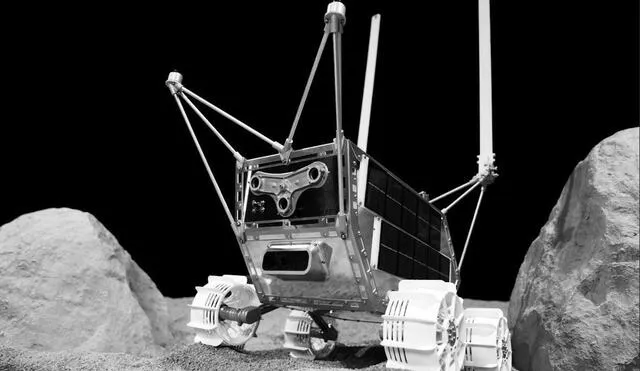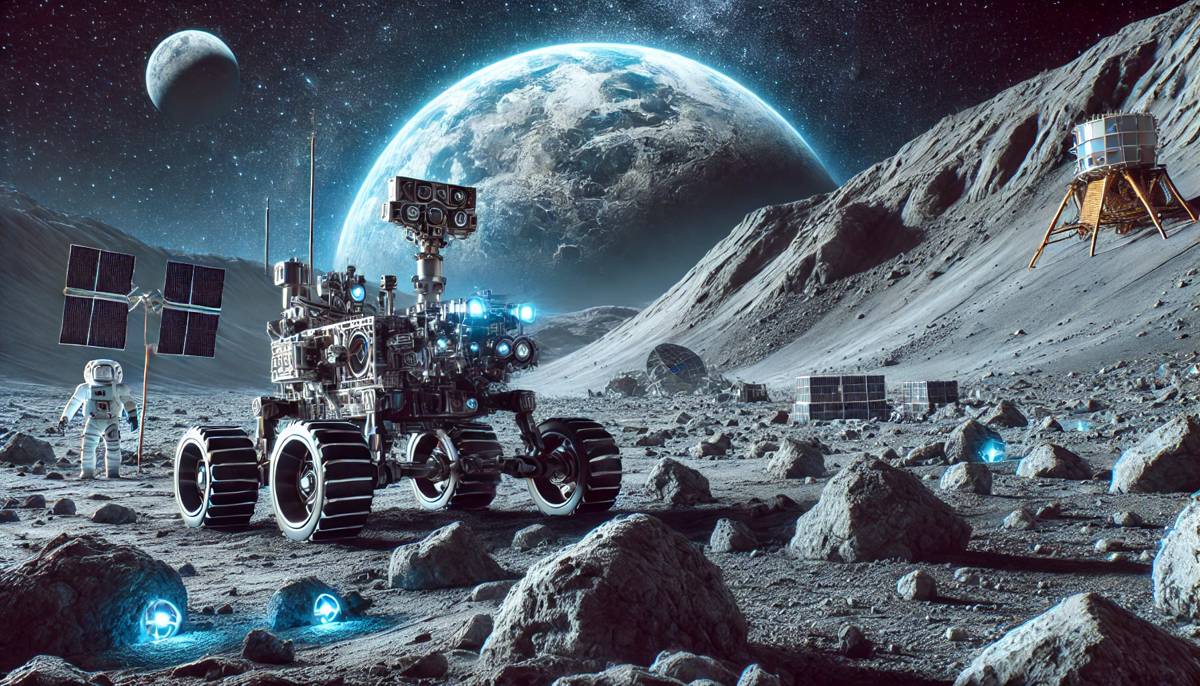Lunar outposts’ MAPP rover to land at Moon's South Pole, pioneering private lunar exploration
Lunar Outpost's MAPP rover is set to land near the Moon's South Pole today, marking a historic achievement for private space exploration and lunar resource commercialization.

In a ground-breaking moment for space exploration, the MAPP rover, developed by Colorado-based Lunar Outpost, is preparing to land on the Moon’s South Pole. Set to touch down aboard the Intuitive Machines Athena lander on March 6, 2025, the rover's mission marks the first time a private company will deploy a rover on the lunar surface. As part of the IM-2 mission, this operation represents a monumental leap toward commercial space exploration and the establishment of a lunar economy.
The rover’s successful landing will not only provide invaluable scientific data but also pave the way for future lunar missions by testing vital technologies. These advancements are expected to play a key role in NASA's Artemis program, which aims to return humans to the Moon and beyond. Moreover, the MAPP rover will be at the forefront of space resource utilization, setting a legal precedent by collecting and selling lunar regolith to NASA.

Lunar Outpost is Pioneering the New Space Economy with Groundbreaking Moon Missions. Photo: Highways Today Composition.
The first private lunar rover
The MAPP rover, named for its Mobile Autonomous Prospecting Platform, is designed to gather critical data regarding the Moon’s surface and environmental conditions. With a compact design of 17.7 by 15 by 15.7 inches, MAPP’s primary mission is to explore the lunar terrain and assess its suitability for future missions. Equipped with advanced instruments, it aims to help design lunar vehicles for NASA’s Artemis astronauts.
This rover is the first of its kind, being the first private rover on the Moon. If successful, it will be an essential tool for commercial enterprises interested in operating on the Moon, with Lunar Outpost CEO, Justin Cyrus, emphasizing its importance as a step toward a sustainable lunar economy. Additionally, the rover will test Nokia’s LTE/4G communication technology, laying the groundwork for more sophisticated communications systems on the Moon. This includes other payloads such as a temperature-measuring device from MIT, which will contribute to the advancement of future space-grade technologies.
Lunar resource commercialization
MAPP's mission is also significant for its role in pioneering lunar resource commercialization. The rover will collect lunar regolith and sell it to NASA for a symbolic $1. While this transaction may seem small, it will establish a crucial legal precedent for the utilization of space resources and set the stage for a lunar economy. This transaction opens the door for private companies to engage in the future extraction and commercialization of lunar materials, potentially transforming the Moon into a key asset in space exploration.
As the MAPP rover nears its historic landing, the implications for lunar exploration and space commerce are immense. Its mission will provide critical insights for the future of human exploration and lunar resource utilization. Furthermore, this achievement highlights the increasing role of private companies in shaping the future of space travel and settlement. The successful deployment of MAPP could redefine our approach to space, making the Moon a stepping stone for humanity’s expansion into the cosmos.












